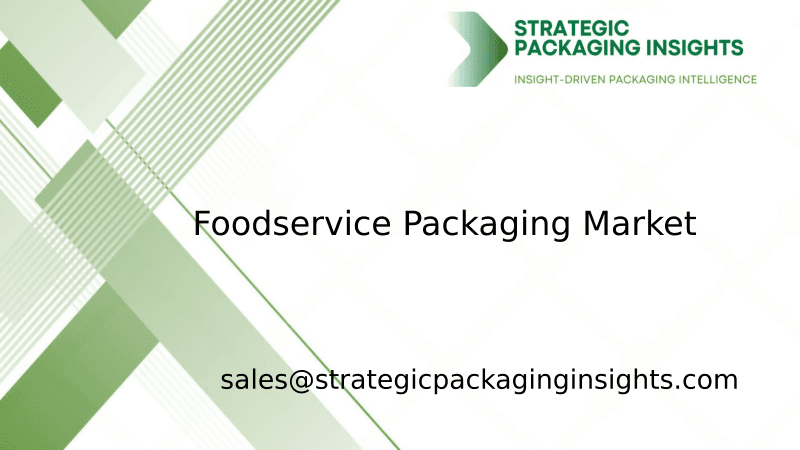- Home
- Packaging Products
- Dual-Ovenable Cook Trays Market Size, Future Growth and Forecast 2033
Dual-Ovenable Cook Trays Market Size, Future Growth and Forecast 2033
Dual-Ovenable Cook Trays Market Segments - by Material Type (Plastic, Paperboard, Aluminum), Application (Food Service, Household, Institutional), End-User (Restaurants, Catering Services, Retail, Others), and Region (North America, Europe, Asia Pacific, Latin America, Middle East & Africa) - Market Dynamics, Growth Opportunities, Strategic Drivers, and PESTLE Outlook (2025–2033)
Dual-Ovenable Cook Trays Market Outlook
The Dual-Ovenable Cook Trays market was valued at $1.2 billion in 2024 and is projected to reach $2.3 billion by 2033, growing at a CAGR of 7.1% during the forecast period 2025–2033. This market is experiencing significant growth due to the increasing demand for convenient and ready-to-eat meals, which has been further accelerated by the rise in dual-income households and changing consumer lifestyles. The versatility of dual-ovenable cook trays, which can withstand both microwave and conventional oven temperatures, makes them an attractive option for food service providers and consumers alike. Additionally, the growing trend of meal kit services and online food delivery platforms is contributing to the increased adoption of these trays, as they offer a practical solution for packaging and reheating meals.
However, the market faces certain challenges, such as the environmental concerns associated with the disposal of plastic trays, which are a significant component of dual-ovenable cook trays. Regulatory pressures to reduce plastic waste and promote Sustainable Packaging solutions are pushing manufacturers to innovate and develop eco-friendly alternatives. Despite these challenges, the market holds substantial growth potential, driven by technological advancements in material science that are enabling the production of more sustainable and cost-effective trays. The increasing focus on sustainability is expected to open new avenues for growth, as companies invest in research and development to create biodegradable and recyclable options.
Report Scope
| Attributes | Details |
| Report Title | Dual-Ovenable Cook Trays Market Size, Future Growth and Forecast 2033 |
| Base Year | 2024 |
| Historic Data | 2017-2023 |
| Forecast Period | 2025-2033 |
| Number of Pages | 142 |
| Material Type | Plastic, Paperboard, Aluminum |
| Application | Food Service, Household, Institutional |
| End-User | Restaurants, Catering Services, Retail, Others |
| Region | North America, Europe, Asia Pacific, Latin America, Middle East & Africa |
| Customization Available | Yes* |
Opportunities & Threats
The dual-ovenable cook trays market presents numerous opportunities for growth, particularly in the realm of sustainable packaging solutions. As consumers become more environmentally conscious, there is a growing demand for eco-friendly packaging options that do not compromise on functionality. This trend is encouraging manufacturers to explore innovative materials and production techniques that reduce environmental impact while maintaining the quality and performance of the trays. Additionally, the rise of e-commerce and online food delivery services is creating new opportunities for market expansion, as these platforms require reliable and efficient packaging solutions to ensure the safe and timely delivery of meals.
Another significant opportunity lies in the increasing popularity of meal kit services, which rely heavily on dual-ovenable cook trays for packaging and reheating purposes. As more consumers embrace the convenience of meal kits, the demand for these trays is expected to rise, providing manufacturers with a lucrative market to tap into. Furthermore, the growing trend of home cooking and baking, spurred by the COVID-19 pandemic, has led to an increased demand for dual-ovenable cook trays in the household segment. This shift in consumer behavior presents a unique opportunity for companies to expand their product offerings and cater to the evolving needs of their customers.
Despite the promising opportunities, the dual-ovenable cook trays market faces certain threats that could hinder its growth. One of the primary challenges is the increasing regulatory pressure to reduce plastic waste and promote sustainable packaging solutions. Governments and environmental organizations are implementing stricter regulations and guidelines to curb plastic pollution, which could impact the production and use of plastic-based dual-ovenable cook trays. Additionally, the rising cost of raw materials and production processes could pose a threat to market growth, as manufacturers may struggle to maintain competitive pricing while adhering to sustainability standards.
The dual-ovenable cook trays market is characterized by a competitive landscape with several key players vying for market share. The market is dominated by a mix of established companies and emerging players, each striving to differentiate themselves through product innovation, quality, and sustainability. The competitive dynamics are influenced by factors such as technological advancements, strategic partnerships, and mergers and acquisitions, which are shaping the market's growth trajectory. Companies are increasingly focusing on expanding their product portfolios and enhancing their production capabilities to meet the growing demand for dual-ovenable cook trays.
Among the leading companies in the market, Huhtamaki Oyj holds a significant market share, known for its extensive range of sustainable packaging solutions. The company's commitment to innovation and sustainability has positioned it as a key player in the dual-ovenable cook trays market. Similarly, Sonoco Products Company is a major player, offering a diverse portfolio of packaging solutions that cater to various end-user segments. The company's focus on research and development has enabled it to introduce innovative products that meet the evolving needs of consumers and businesses alike.
Another prominent player in the market is Pactiv LLC, which is renowned for its comprehensive range of food packaging solutions, including dual-ovenable cook trays. The company's strong distribution network and strategic partnerships have contributed to its robust market presence. Additionally, Sealed Air Corporation is a key player, leveraging its expertise in packaging technology to offer high-quality dual-ovenable cook trays that cater to the food service and retail sectors. The company's emphasis on sustainability and innovation has helped it maintain a competitive edge in the market.
Other notable companies in the dual-ovenable cook trays market include Genpak LLC, which is recognized for its commitment to quality and customer satisfaction. The company's diverse product offerings and focus on sustainability have enabled it to capture a significant share of the market. Similarly, Sabert Corporation is a key player, known for its innovative packaging solutions that cater to the food service industry. The company's strategic focus on expanding its product portfolio and enhancing its production capabilities has positioned it as a leading player in the market.
Key Highlights Dual-Ovenable Cook Trays Market

- Increasing demand for convenient and ready-to-eat meals is driving market growth.
- Technological advancements in material science are enabling the production of sustainable trays.
- Regulatory pressures to reduce plastic waste are pushing manufacturers to innovate.
- The rise of e-commerce and online food delivery services is creating new market opportunities.
- Meal kit services are driving demand for dual-ovenable cook trays.
- Home cooking and baking trends are boosting demand in the household segment.
- Companies are focusing on expanding their product portfolios and enhancing production capabilities.
- Strategic partnerships and mergers are shaping the competitive landscape.
- Environmental concerns are driving the development of eco-friendly packaging solutions.
- Rising raw material costs could impact market growth.
Top Countries Insights in Dual-Ovenable Cook Trays
In the United States, the dual-ovenable cook trays market is valued at approximately $400 million, with a CAGR of 6%. The market is driven by the high demand for convenient meal solutions and the growing popularity of meal kit services. The presence of major food service providers and a well-established e-commerce infrastructure further supports market growth. However, regulatory pressures to reduce plastic waste pose a challenge to manufacturers.
In Germany, the market is valued at around $250 million, with a CAGR of 5%. The demand for dual-ovenable cook trays is fueled by the increasing trend of home cooking and baking, as well as the rise of online food delivery services. The country's strong focus on sustainability and environmental protection is encouraging manufacturers to develop eco-friendly packaging solutions.
China's market is valued at approximately $300 million, with a CAGR of 8%. The rapid growth of the e-commerce sector and the increasing adoption of meal kit services are driving demand for dual-ovenable cook trays. The government's initiatives to promote sustainable packaging solutions are also contributing to market growth, as manufacturers invest in research and development to create innovative products.
In the United Kingdom, the market is valued at around $200 million, with a CAGR of 4%. The demand for dual-ovenable cook trays is driven by the growing popularity of ready-to-eat meals and the rise of online food delivery platforms. The country's stringent regulations on plastic waste are pushing manufacturers to explore sustainable alternatives, which is expected to drive innovation in the market.
In India, the market is valued at approximately $150 million, with a CAGR of 7%. The increasing urbanization and changing consumer lifestyles are driving demand for convenient meal solutions, including dual-ovenable cook trays. The government's focus on promoting sustainable packaging solutions is encouraging manufacturers to develop eco-friendly products, which is expected to support market growth.
Value Chain Profitability Analysis
The value chain profitability analysis for the Dual-Ovenable Cook Trays market reveals a complex ecosystem involving various stakeholders, each capturing different shares of the overall market value. The value chain begins with raw material suppliers, who provide the essential components for manufacturing dual-ovenable cook trays. These suppliers typically capture a moderate profit margin, as they are subject to fluctuations in raw material costs and regulatory pressures to provide sustainable materials.
Manufacturers of dual-ovenable cook trays play a crucial role in the value chain, capturing a significant share of the market value. They are responsible for transforming raw materials into finished products, utilizing advanced production techniques and technologies to ensure quality and efficiency. Manufacturers face challenges related to production costs and regulatory compliance, but they also benefit from economies of scale and the ability to innovate and differentiate their products.
Distributors and retailers are key stakeholders in the value chain, responsible for bringing dual-ovenable cook trays to market. They capture a substantial portion of the market value, leveraging their extensive distribution networks and customer relationships to drive sales. Distributors and retailers face challenges related to logistics and inventory management, but they also benefit from the growing demand for convenient meal solutions and the rise of e-commerce platforms.
End-users, including food service providers, households, and institutional buyers, are the final link in the value chain. They capture value by utilizing dual-ovenable cook trays to meet their specific needs, whether for packaging and reheating meals or for serving food in a convenient and efficient manner. End-users benefit from the versatility and functionality of dual-ovenable cook trays, but they also face challenges related to cost and sustainability considerations.
Evolving Market Dynamics (2018–2024) and Strategic Foresight (2025–2033)
The dual-ovenable cook trays market has undergone significant changes between 2018 and 2024, driven by evolving consumer preferences, technological advancements, and regulatory pressures. During this period, the market experienced steady growth, with a CAGR of 5.5%, as consumers increasingly sought convenient meal solutions and manufacturers responded with innovative products. The rise of e-commerce and online food delivery services further fueled market expansion, as these platforms required reliable and efficient packaging solutions.
Looking ahead to the forecast period of 2025 to 2033, the dual-ovenable cook trays market is expected to continue its growth trajectory, with a projected CAGR of 7.1%. This growth will be driven by several key factors, including the increasing demand for sustainable packaging solutions, the rise of meal kit services, and the growing popularity of home cooking and baking. Technological advancements in material science will enable manufacturers to develop more sustainable and cost-effective trays, while strategic partnerships and mergers will shape the competitive landscape.
During the forecast period, the market is expected to witness a shift in segment distribution, with the household segment capturing a larger share of the market value. This shift will be driven by the growing trend of home cooking and baking, as well as the increasing adoption of meal kit services. Additionally, the market is expected to see a greater emphasis on sustainability, as manufacturers invest in research and development to create eco-friendly packaging solutions that meet regulatory requirements and consumer expectations.
Dual-Ovenable Cook Trays Market Segments Insights

Material Type Analysis
The material type segment of the dual-ovenable cook trays market is primarily divided into plastic, Paperboard, and aluminum. Plastic trays dominate the market due to their cost-effectiveness and versatility, allowing them to withstand both microwave and conventional oven temperatures. However, environmental concerns and regulatory pressures are driving manufacturers to explore alternative materials, such as biodegradable plastics and recyclable paperboard. The paperboard segment is gaining traction as a sustainable alternative, offering similar functionality with a reduced environmental impact. Aluminum Trays, while less common, are valued for their durability and heat resistance, making them suitable for specific applications.
Manufacturers are increasingly focusing on developing innovative materials that balance performance and sustainability. The growing demand for eco-friendly packaging solutions is encouraging companies to invest in research and development to create new materials that meet regulatory requirements and consumer expectations. As a result, the material type segment is expected to witness significant growth, driven by technological advancements and the increasing emphasis on sustainability.
Application Analysis
The application segment of the dual-ovenable cook trays market is categorized into food service, household, and institutional. The food service segment holds the largest share of the market, driven by the high demand for convenient meal solutions in restaurants, catering services, and other food service establishments. Dual-ovenable cook trays offer a practical solution for packaging and reheating meals, making them an essential component of the food service industry.
The household segment is experiencing rapid growth, fueled by the increasing trend of home cooking and baking. The COVID-19 pandemic has accelerated this trend, as more consumers seek convenient and efficient solutions for preparing and serving meals at home. The institutional segment, which includes schools, hospitals, and other large-scale food service providers, is also witnessing growth, driven by the need for reliable and efficient packaging solutions that meet the specific requirements of these establishments.
End-User Analysis
The end-user segment of the dual-ovenable cook trays market is divided into restaurants, catering services, retail, and others. Restaurants and catering services are the primary end-users, accounting for a significant share of the market. These establishments rely on dual-ovenable cook trays for packaging and reheating meals, as they offer a convenient and efficient solution for serving food to customers.
The retail segment is also experiencing growth, driven by the increasing popularity of meal kit services and online food delivery platforms. These platforms require reliable and efficient packaging solutions to ensure the safe and timely delivery of meals, making dual-ovenable cook trays an essential component of their operations. The 'others' segment, which includes households and institutional buyers, is witnessing growth as well, driven by the increasing demand for convenient meal solutions and the growing trend of home cooking and baking.
Regional Analysis
The regional segment of the dual-ovenable cook trays market is divided into North America, Europe, Asia Pacific, Latin America, and the Middle East & Africa. North America holds the largest share of the market, driven by the high demand for convenient meal solutions and the presence of major food service providers. The region's well-established e-commerce infrastructure further supports market growth, as online food delivery platforms require reliable and efficient packaging solutions.
Europe is the second-largest market, driven by the increasing trend of home cooking and baking, as well as the rise of online food delivery services. The region's strong focus on sustainability and environmental protection is encouraging manufacturers to develop eco-friendly packaging solutions. Asia Pacific is experiencing rapid growth, driven by the increasing adoption of meal kit services and the rapid growth of the e-commerce sector. The region's large population and growing middle class are also contributing to market expansion.
Dual-Ovenable Cook Trays Market Segments
The Dual-Ovenable Cook Trays market has been segmented on the basis of
Material Type
- Plastic
- Paperboard
- Aluminum
Application
- Food Service
- Household
- Institutional
End-User
- Restaurants
- Catering Services
- Retail
- Others
Region
- North America
- Europe
- Asia Pacific
- Latin America
- Middle East & Africa
Primary Interview Insights
What are the key drivers of growth in the dual-ovenable cook trays market?
How are regulatory pressures impacting the market?
What role does sustainability play in the market?
How is the rise of e-commerce affecting the market?
What are the challenges facing the dual-ovenable cook trays market?
Latest Reports

The fiber drums market was valued at $1.2 billion in 2024 and is projected to reach $2.1 billion by 2033, growing at a CAGR of 6.5% during the forecast period 2025–2033.

The cosmetics and perfumery glass bottles market was valued at $1.5 billion in 2024 and is projected to reach $2.3 billion by 2033, growing at a CAGR of 4.8% during the forecast period 2025–2033.

The medical devices packaging market was valued at $25 billion in 2024 and is projected to reach $40 billion by 2033, growing at a CAGR of 5.5% during the forecast period 2025–2033.

The primary packaging labels market was valued at $35 billion in 2024 and is projected to reach $55 billion by 2033, growing at a CAGR of 5.2% during the forecast period 2025–2033.

The corrugated board packaging market was valued at $250 billion in 2024 and is projected to reach $380 billion by 2033, growing at a CAGR of 4.5% during the forecast period 2025–2033.

The Water Soluble Packaging Films market was valued at $2.8 billion in 2024 and is projected to reach $5.6 billion by 2033, growing at a CAGR of 8.1% during the forecast period 2025–2033.

The Aluminium Foil Packaging market was valued at $25 billion in 2024 and is projected to reach $40 billion by 2033, growing at a CAGR of 5.5% during the forecast period 2025–2033.

The self-heating food packaging market was valued at $4.5 billion in 2024 and is projected to reach $7.8 billion by 2033, growing at a CAGR of 6.2% during the forecast period 2025–2033.

The Smart Container market was valued at $2.5 billion in 2024 and is projected to reach $8.7 billion by 2033, growing at a CAGR of 14.5% during the forecast period 2025–2033.

The Automatic Labeling Machine market was valued at $2.5 billion in 2024 and is projected to reach $4.8 billion by 2033, growing at a CAGR of 7.2% during the forecast period 2025–2033.

The Hot Melt Glue Labeler market was valued at $1.2 billion in 2024 and is projected to reach $2.3 billion by 2033, growing at a CAGR of 6.5% during the forecast period 2025–2033.

The Ethical Label market was valued at $1.5 billion in 2024 and is projected to reach $3.2 billion by 2033, growing at a CAGR of 8.5% during the forecast period 2025–2033.

The Packaging Tensioner market was valued at $1.2 billion in 2024 and is projected to reach $2.3 billion by 2033, growing at a CAGR of 6.5% during the forecast period 2025–2033.

The foodservice packaging market was valued at $120 billion in 2024 and is projected to reach $180 billion by 2033, growing at a CAGR of 4.5% during the forecast period 2025–2033.

The nano-enabled packaging market was valued at $15.2 billion in 2024 and is projected to reach $35.6 billion by 2033, growing at a CAGR of 9.5% during the forecast period 2025–2033.

The Cold Seal Packaging market was valued at $1.5 billion in 2024 and is projected to reach $2.3 billion by 2033, growing at a CAGR of 4.8% during the forecast period 2025–2033.

The Transparent Barrier Packaging Films market was valued at $12.5 billion in 2024 and is projected to reach $20.3 billion by 2033, growing at a CAGR of 5.8% during the forecast period 2025–2033.

The Flatback Tape market was valued at $2.5 billion in 2024 and is projected to reach $4.1 billion by 2033, growing at a CAGR of 5.8% during the forecast period 2025–2033.

The packer bottle market was valued at $3.5 billion in 2024 and is projected to reach $5.8 billion by 2033, growing at a CAGR of 5.2% during the forecast period 2025–2033.

The Canada Nano-Enabled Packaging Food Beverages market was valued at $1.2 billion in 2024 and is projected to reach $3.5 billion by 2033, growing at a CAGR of 12.5% during the forecast period 2025–2033.

The India Aluminum Beverage Can market was valued at $1.2 billion in 2024 and is projected to reach $2.5 billion by 2033, growing at a CAGR of 8.5% during the forecast period 2025–2033.

The fast-food reusable packaging market was valued at $1.2 billion in 2024 and is projected to reach $3.5 billion by 2033, growing at a CAGR of 12.5% during the forecast period 2025–2033.

The pallets market was valued at $59.91 billion in 2024 and is projected to reach $88.69 billion by 2033, growing at a CAGR of 4.5% during the forecast period 2025–2033.

The lamination adhesives market was valued at $2.5 billion in 2024 and is projected to reach $4.1 billion by 2033, growing at a CAGR of 5.8% during the forecast period 2025–2033.

The garment packing machine market was valued at $1.2 billion in 2024 and is projected to reach $2.5 billion by 2033, growing at a CAGR of 8.5% during the forecast period 2025–2033.

The fiber drums market was valued at $1.2 billion in 2024 and is projected to reach $2.1 billion by 2033, growing at a CAGR of 6.5% during the forecast period 2025–2033.

The cosmetics and perfumery glass bottles market was valued at $1.5 billion in 2024 and is projected to reach $2.3 billion by 2033, growing at a CAGR of 4.8% during the forecast period 2025–2033.

The medical devices packaging market was valued at $25 billion in 2024 and is projected to reach $40 billion by 2033, growing at a CAGR of 5.5% during the forecast period 2025–2033.

The primary packaging labels market was valued at $35 billion in 2024 and is projected to reach $55 billion by 2033, growing at a CAGR of 5.2% during the forecast period 2025–2033.

The corrugated board packaging market was valued at $250 billion in 2024 and is projected to reach $380 billion by 2033, growing at a CAGR of 4.5% during the forecast period 2025–2033.

The Water Soluble Packaging Films market was valued at $2.8 billion in 2024 and is projected to reach $5.6 billion by 2033, growing at a CAGR of 8.1% during the forecast period 2025–2033.

The Aluminium Foil Packaging market was valued at $25 billion in 2024 and is projected to reach $40 billion by 2033, growing at a CAGR of 5.5% during the forecast period 2025–2033.

The self-heating food packaging market was valued at $4.5 billion in 2024 and is projected to reach $7.8 billion by 2033, growing at a CAGR of 6.2% during the forecast period 2025–2033.

The Smart Container market was valued at $2.5 billion in 2024 and is projected to reach $8.7 billion by 2033, growing at a CAGR of 14.5% during the forecast period 2025–2033.

The Automatic Labeling Machine market was valued at $2.5 billion in 2024 and is projected to reach $4.8 billion by 2033, growing at a CAGR of 7.2% during the forecast period 2025–2033.

The Hot Melt Glue Labeler market was valued at $1.2 billion in 2024 and is projected to reach $2.3 billion by 2033, growing at a CAGR of 6.5% during the forecast period 2025–2033.

The Ethical Label market was valued at $1.5 billion in 2024 and is projected to reach $3.2 billion by 2033, growing at a CAGR of 8.5% during the forecast period 2025–2033.

The Packaging Tensioner market was valued at $1.2 billion in 2024 and is projected to reach $2.3 billion by 2033, growing at a CAGR of 6.5% during the forecast period 2025–2033.

The foodservice packaging market was valued at $120 billion in 2024 and is projected to reach $180 billion by 2033, growing at a CAGR of 4.5% during the forecast period 2025–2033.

The nano-enabled packaging market was valued at $15.2 billion in 2024 and is projected to reach $35.6 billion by 2033, growing at a CAGR of 9.5% during the forecast period 2025–2033.

The Cold Seal Packaging market was valued at $1.5 billion in 2024 and is projected to reach $2.3 billion by 2033, growing at a CAGR of 4.8% during the forecast period 2025–2033.

The Transparent Barrier Packaging Films market was valued at $12.5 billion in 2024 and is projected to reach $20.3 billion by 2033, growing at a CAGR of 5.8% during the forecast period 2025–2033.

The Flatback Tape market was valued at $2.5 billion in 2024 and is projected to reach $4.1 billion by 2033, growing at a CAGR of 5.8% during the forecast period 2025–2033.

The packer bottle market was valued at $3.5 billion in 2024 and is projected to reach $5.8 billion by 2033, growing at a CAGR of 5.2% during the forecast period 2025–2033.

The Canada Nano-Enabled Packaging Food Beverages market was valued at $1.2 billion in 2024 and is projected to reach $3.5 billion by 2033, growing at a CAGR of 12.5% during the forecast period 2025–2033.

The India Aluminum Beverage Can market was valued at $1.2 billion in 2024 and is projected to reach $2.5 billion by 2033, growing at a CAGR of 8.5% during the forecast period 2025–2033.

The fast-food reusable packaging market was valued at $1.2 billion in 2024 and is projected to reach $3.5 billion by 2033, growing at a CAGR of 12.5% during the forecast period 2025–2033.

The pallets market was valued at $59.91 billion in 2024 and is projected to reach $88.69 billion by 2033, growing at a CAGR of 4.5% during the forecast period 2025–2033.

The lamination adhesives market was valued at $2.5 billion in 2024 and is projected to reach $4.1 billion by 2033, growing at a CAGR of 5.8% during the forecast period 2025–2033.

The garment packing machine market was valued at $1.2 billion in 2024 and is projected to reach $2.5 billion by 2033, growing at a CAGR of 8.5% during the forecast period 2025–2033.
